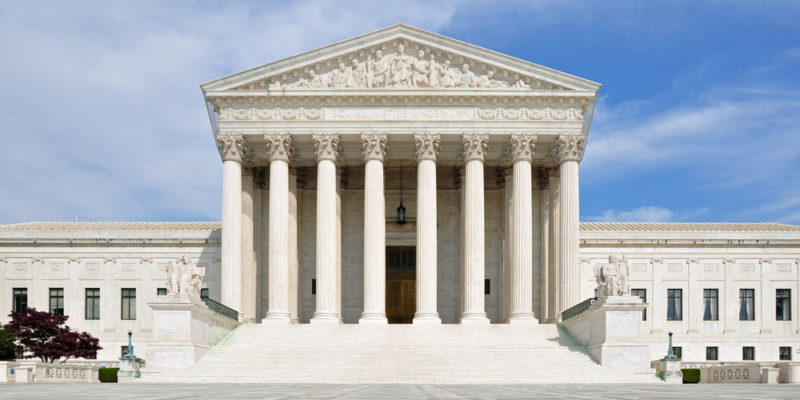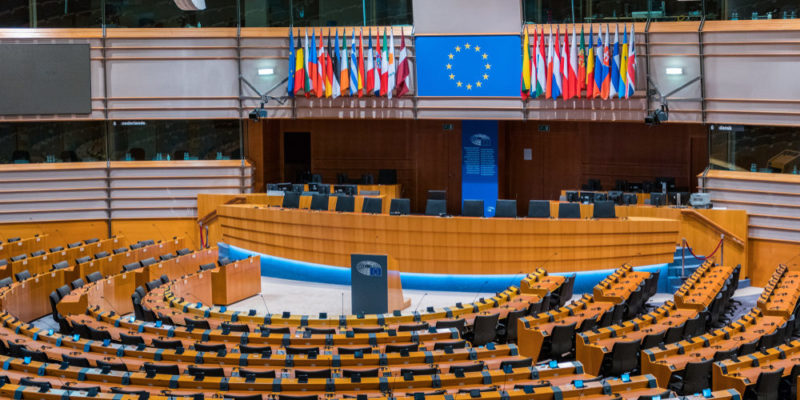We explain what a national constitution is and the functions it fulfills. Also, what are its general characteristics and classification.
What is a national Constitution?
The constitution is the constitution of a state . It is the primary law and superior to any other that exists in that country.
The writing of a constitution is based on the principle that the political power of a nation must be exercised in a rational and organized way. In addition, it establishes a separation of powers that prevents absolutism .
Contrary to the divine power of absolute monarchies , constitutions establish the people of a nation as the primary constituent from which the power of rulers proceeds . In other words, it guarantees the sovereignty of the people.
Characteristics of a constitution :
Features

The constitution designates specific powers to each of the servants of the state , favoring political stability.
In addition, it indicates the fundamental rights of the citizens and inhabitants of a territory.
In principle, its rank is superior to any other law . For this reason, if the functioning of the State bodies is adequate, the constitution guarantees that no law or provision of the government conflicts with the fundamental rights specified in it.
-
Source
For this reason, liberal constitutions establish the rights of all citizens , as well as equality among them, preventing a person or a group of people from demanding privileges over others.
Constitutions are drawn up by a group of representatives of the people , organized in a congress. Later they can be modified by laws or more complex procedures determined by the same constitution.
Constitutional supremacy

In theory, the Constitution of a country ranks hierarchically above any other legal system . That is why it is called the Supreme Law of the State.
However, international treaties exceed the borders of that country and may rank higher or lower than the Constitution. The law of each country defines the constitutional rank of international treaties.
For example, in Mexico , the Supreme Court of Justice of the Nation determined that the Constitution is above international treaties. In Argentina , the Constitution is in the same hierarchy as the International Human Rights Treaties , but other international treaties must be subordinate to these two authorities.
-
Control of constitutionality
 For Constitutional Supremacy to be effective, there must be state institutions and mechanisms that guarantee that no law, ordinance or treaty conflicts with the Constitution.
For Constitutional Supremacy to be effective, there must be state institutions and mechanisms that guarantee that no law, ordinance or treaty conflicts with the Constitution.Usually the Supreme Court of the Nation is the body that has the necessary means of control to monitor and, if necessary, invalidate those norms that are considered unconstitutional.
Flexibility
Depending on the flexibility, a constitution can be:
- Rigid or semi-rigid. They are those constitutions that require a more complex procedure than the ordinary legislative one to be modified.
- Flexible They are the constitutions that can be modified simply by a law.
-
Liberal constitutions
Those that are considered liberal are those that determine that the state is secular and that there is a freedom of worship in the territory, that eliminate private and corporate rights, that demand the nationalization of ecclesiastical property and / or that institute a government entirely civil and republican.
Conservative constitutions

The most conservative constitutions throughout history are those that propose more gradual changes , for example, guaranteeing an official function of religion in the state, the gradual dissolution of corporations, the maintenance of the autonomy of the Church and the establishment of a monarchy, even if it is parliamentary .
There are numerous constitutions that do not comply with all the conservative characteristics or with all the liberal characteristics, standing at intermediate points.
-
Constitutional principles
- Principle of equality of all before the law. Refuse class or caste privileges.
- Principle of legality. Establish a state governed by laws
- Principle of rationality of the law.
- Principle of independence of the powers of the state. Constitutional states have a division of powers into executive , legislative and judicial
- Principle of non-retroactivity of the law. The constitutions establish that a new law cannot be used to judge actions from the past.
Original and derived constitutions

The original constitutions are those that do not take other magnitudes as a model . The constitution established after the French Revolution of 1789 is an example.
On the contrary, derived constitutions are those that have been modeled on other constitutions , modifying them to more adequately meet the needs of the new nation.
-
Types of origin of the constitution
- Constitutions granted. Despite having started as an opposition to absolute monarchical power, some constitutions in past centuries were drawn up by the monarch. This was a way that some kings chose to continue their absolute rule, under the guise of legality.
- Imposed Constitutions. They are debated by the parliament and established from the political power for the other social actors.
- Agreed. are those that arise from the debate and agreement between various agents of society .
Luke is passionate about fostering student involvement and connection. He studied psychology for his major and likes learning about the past. Luke aims to specialize in artificial intelligence and cybersecurity. .
Leave a reply
Your email address will not be published. Required fields are marked *Recent post

Sport: What Is It, Types, Risks, Features, Characteristics and Examples

Dogs: Emergence, Features, Characteristics, Feeding and Breeds

Story: Definition, Elements, Structure, Features and Characteristics

